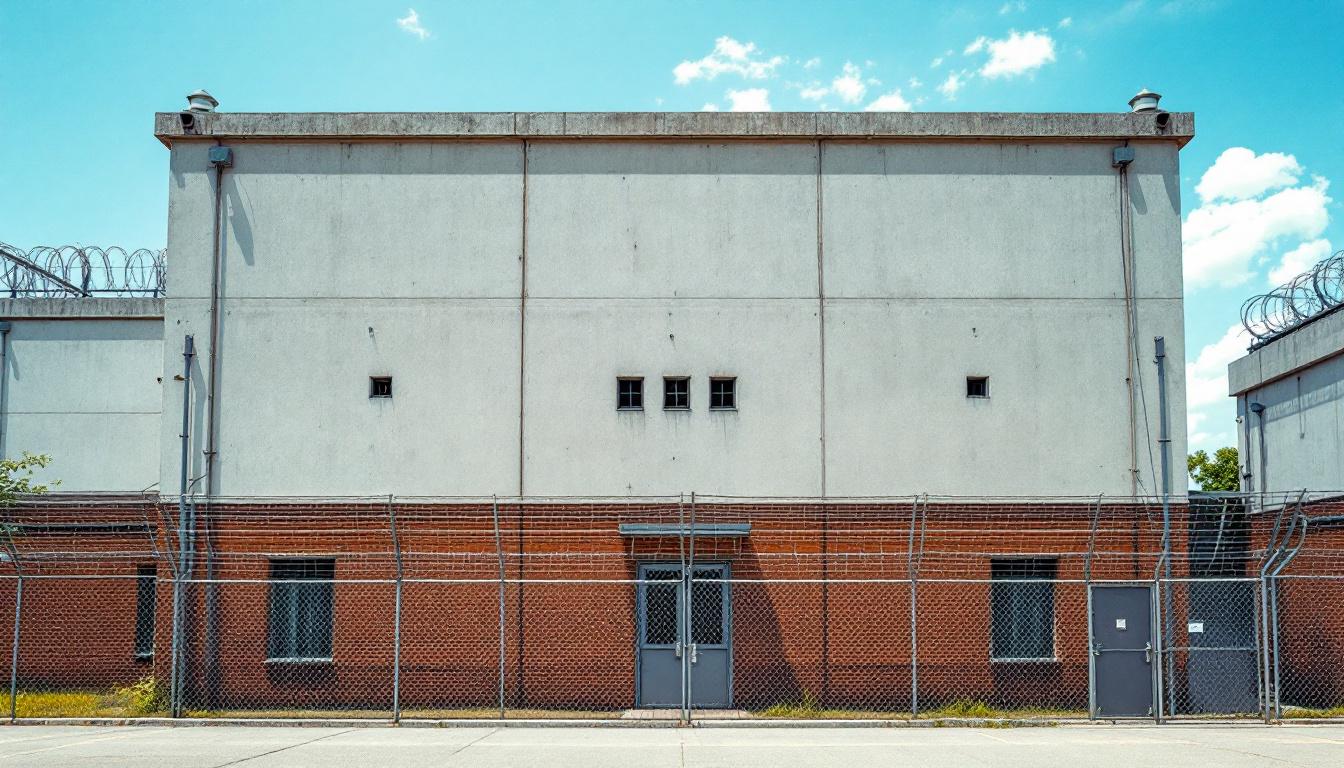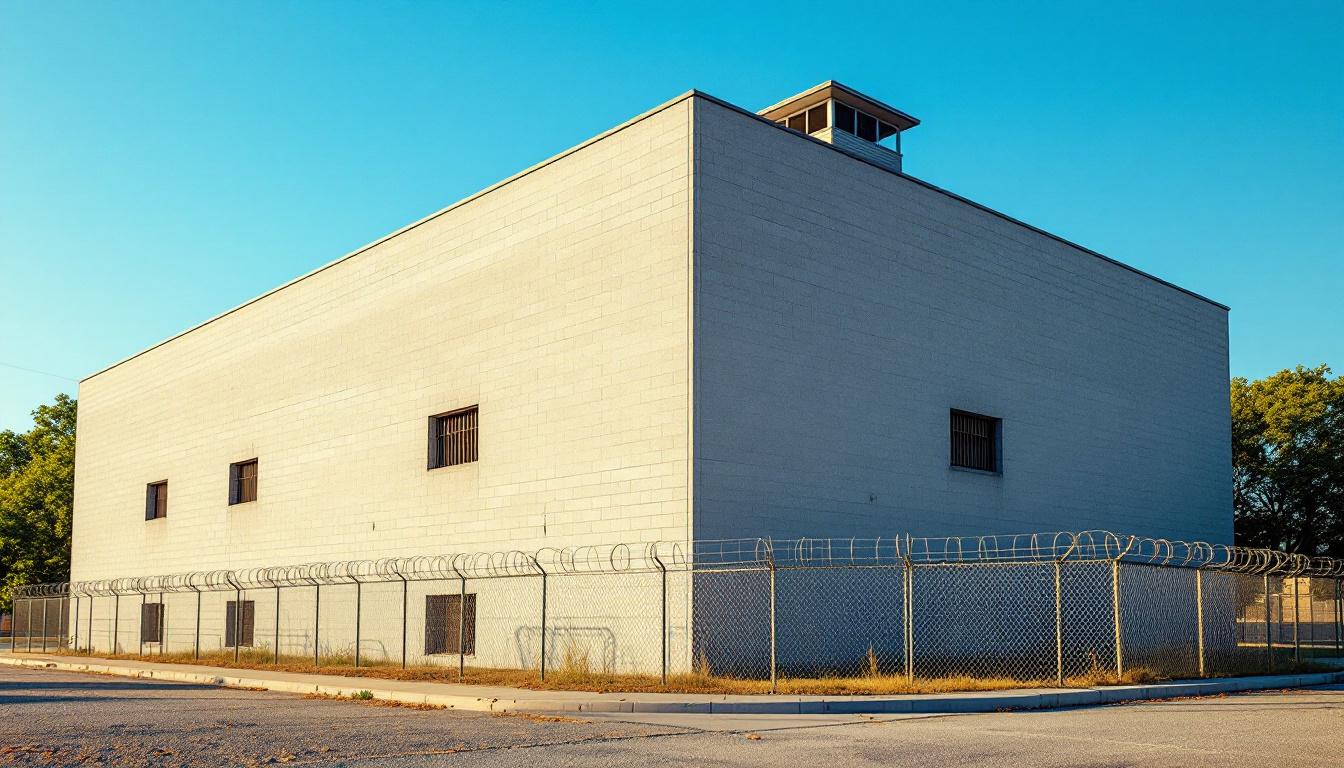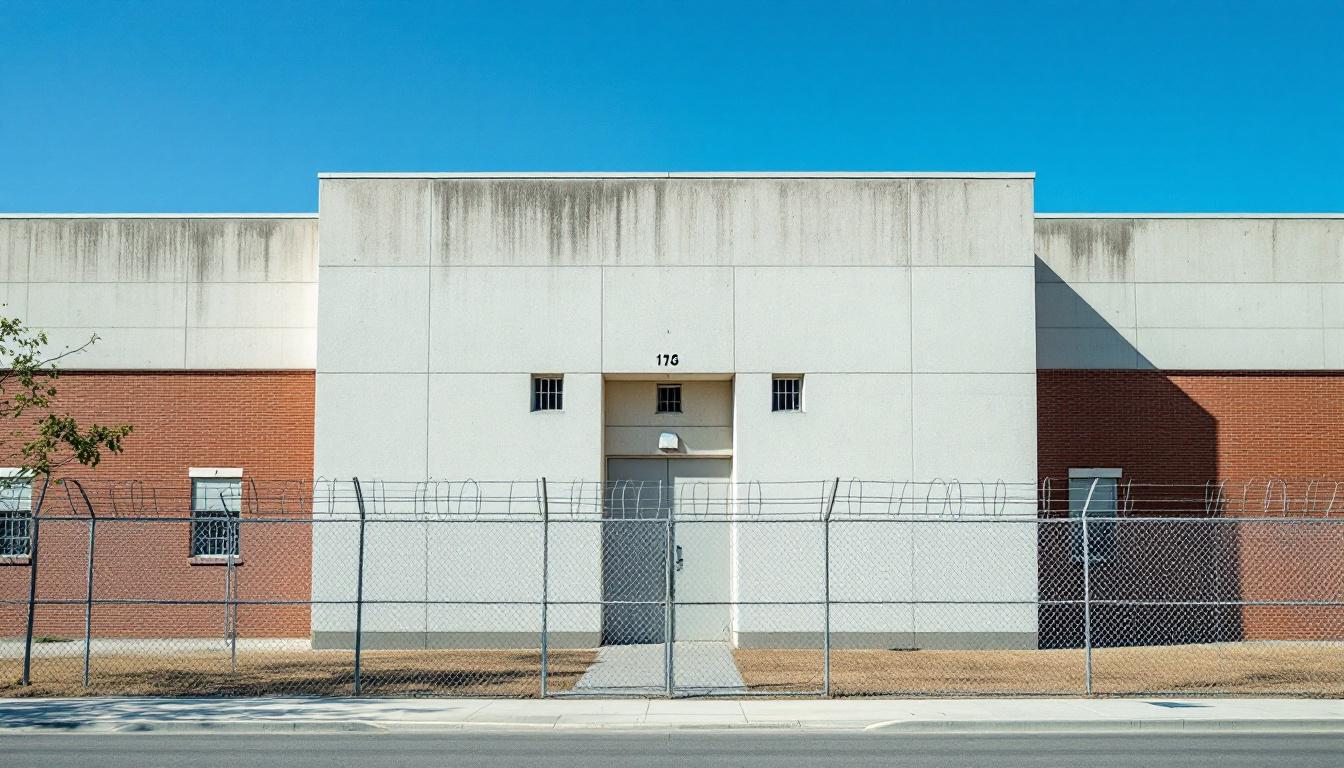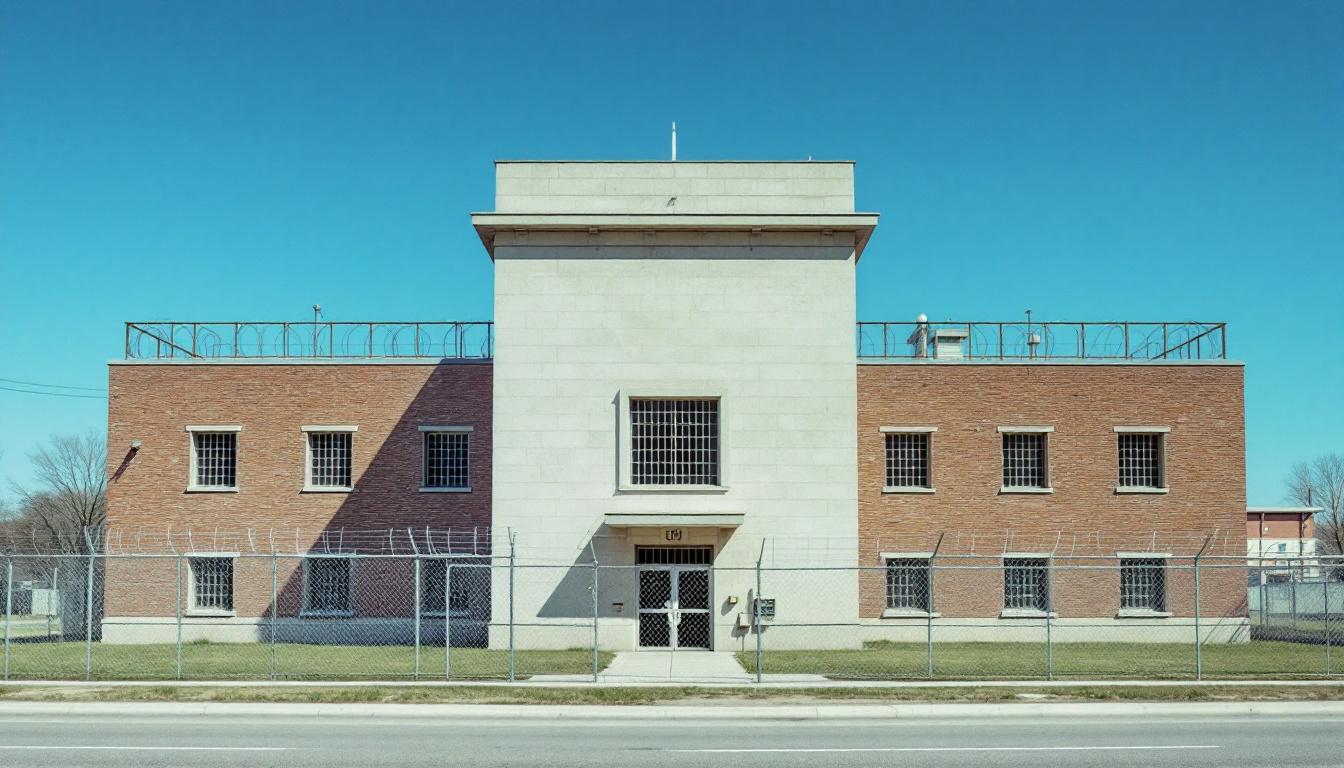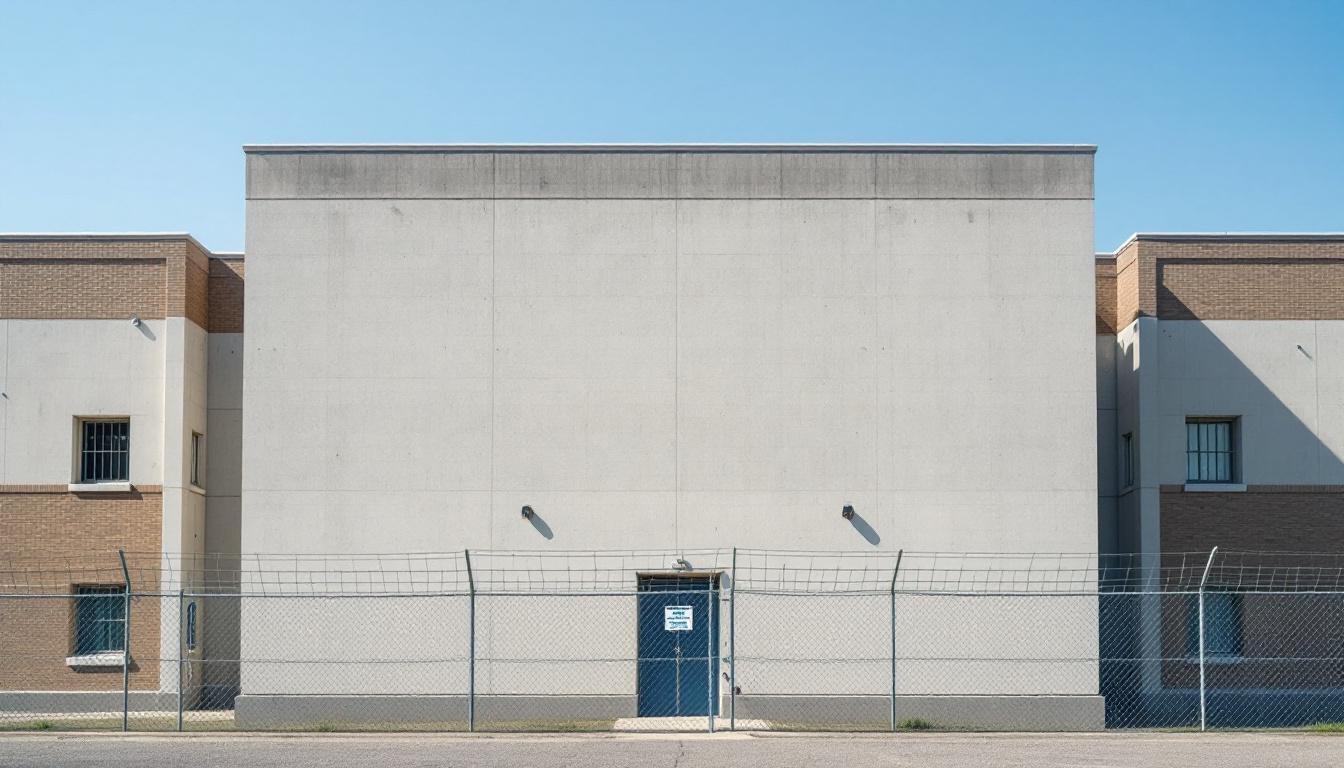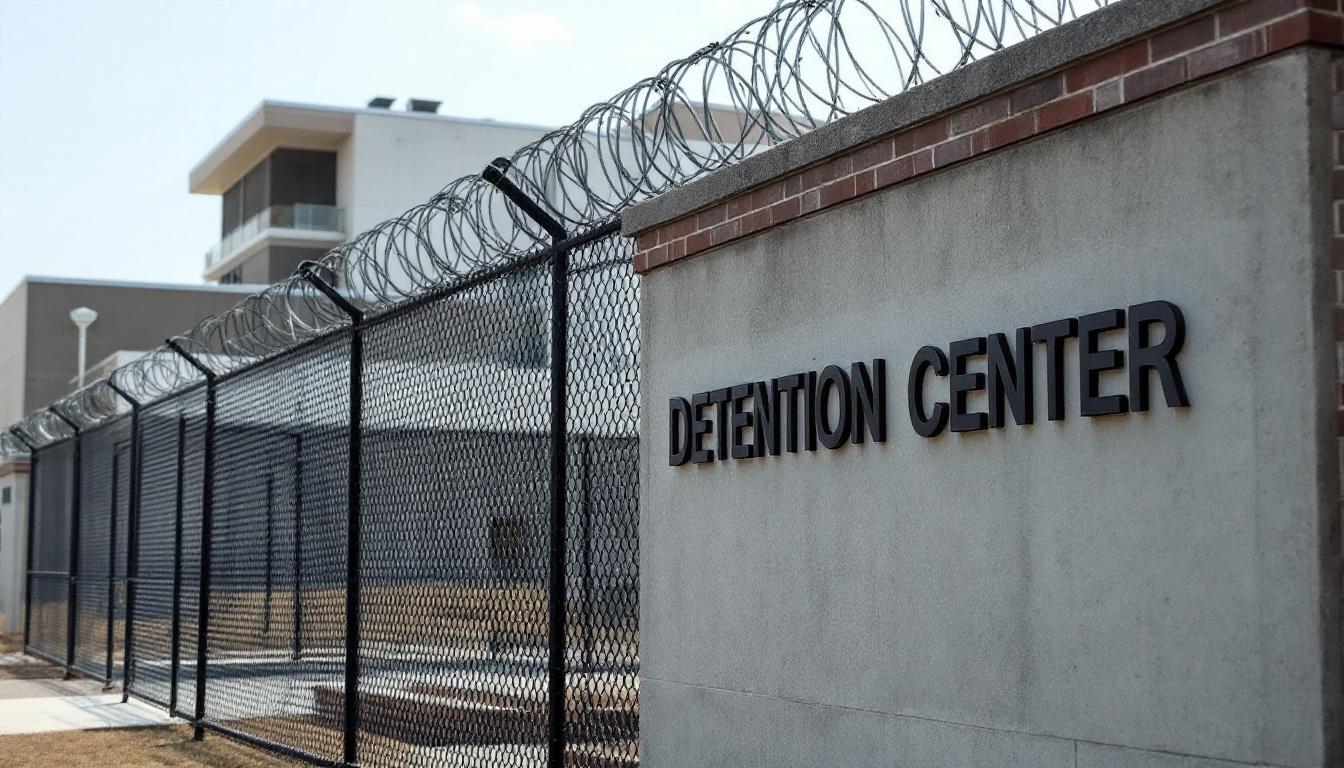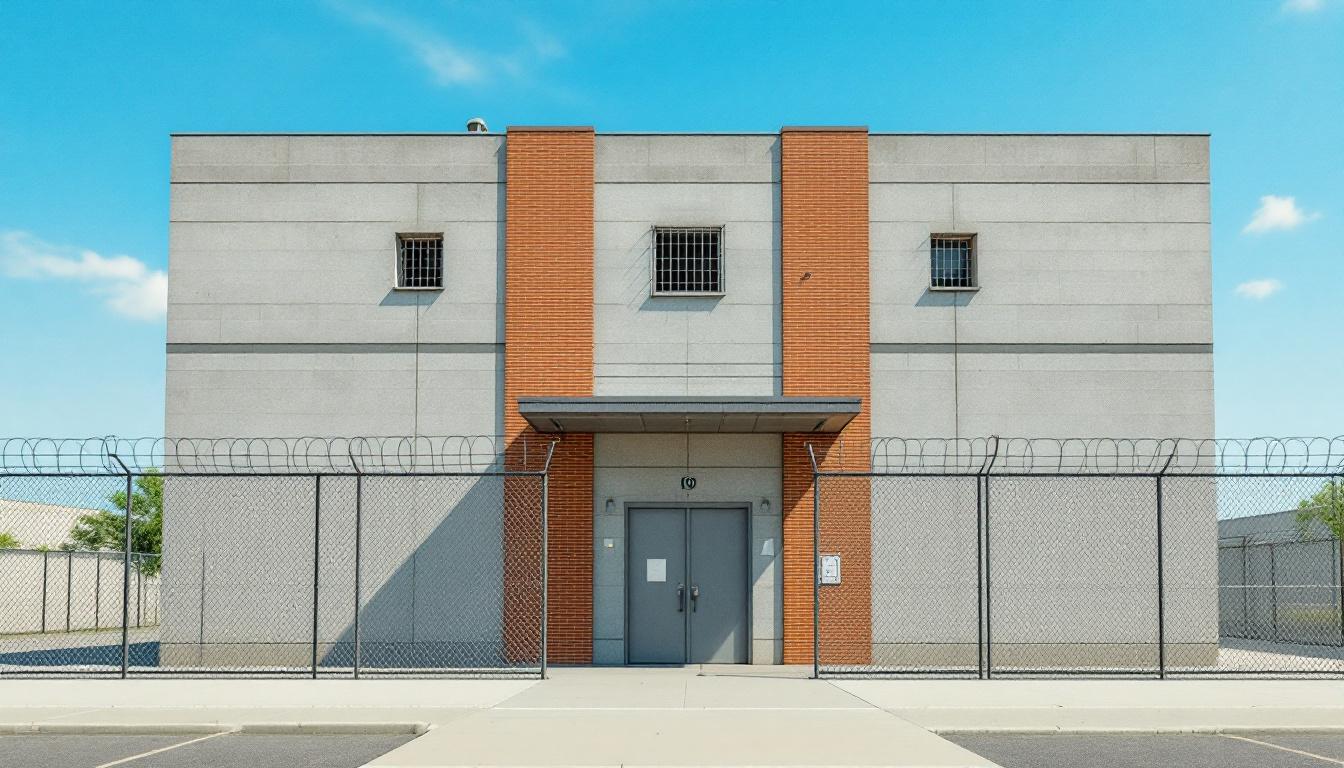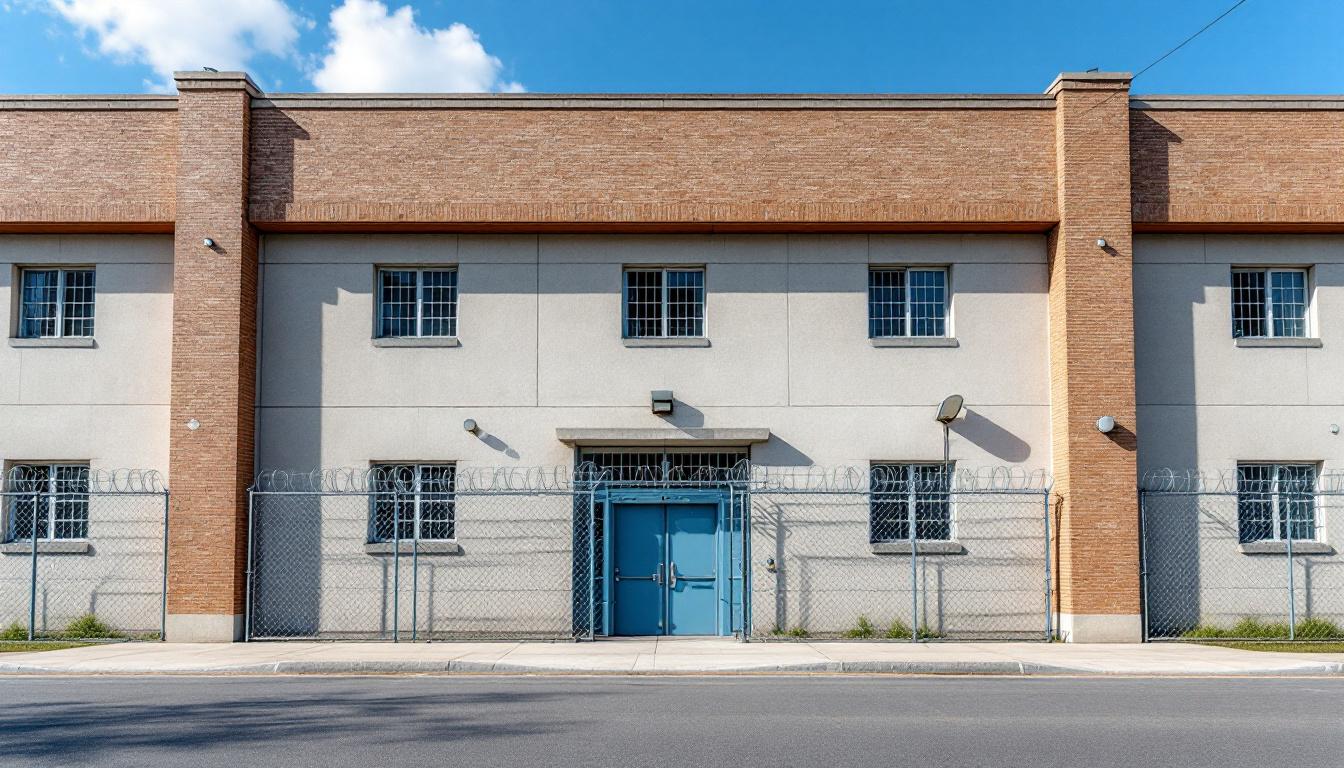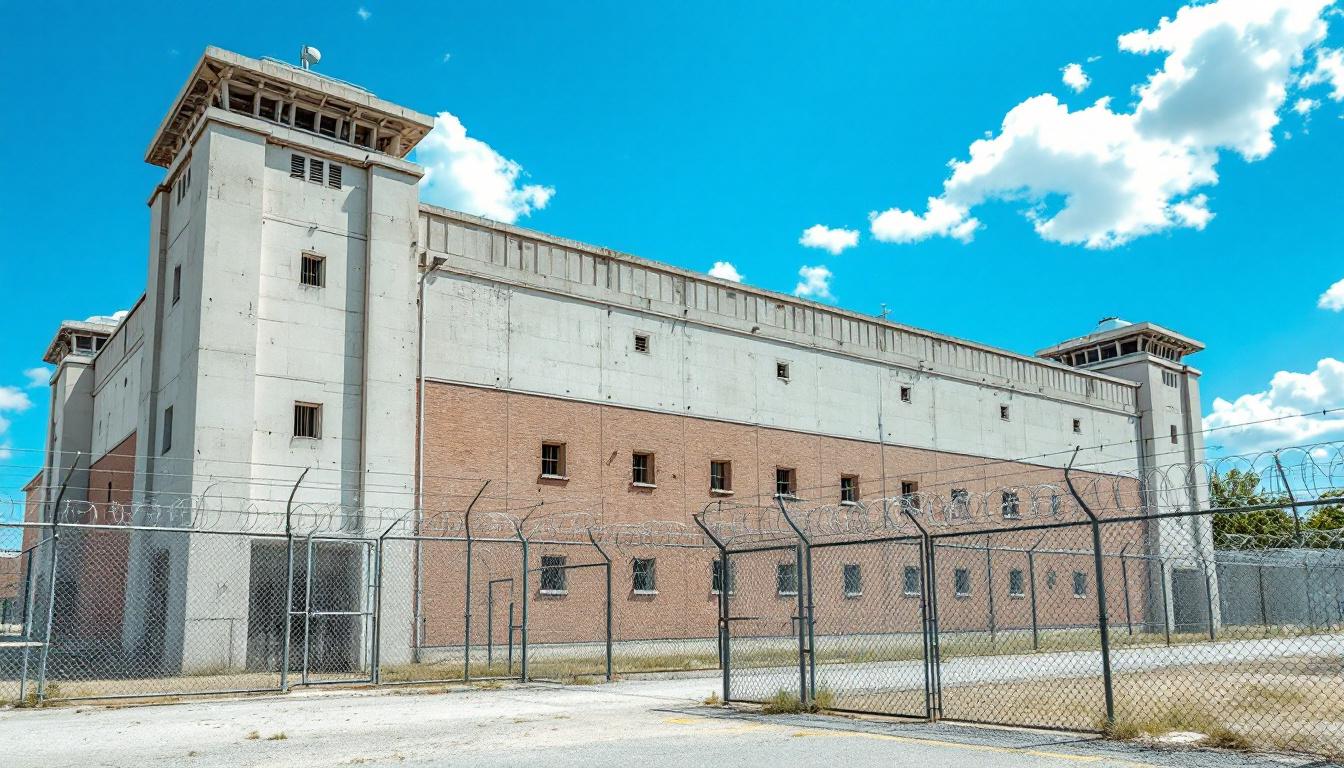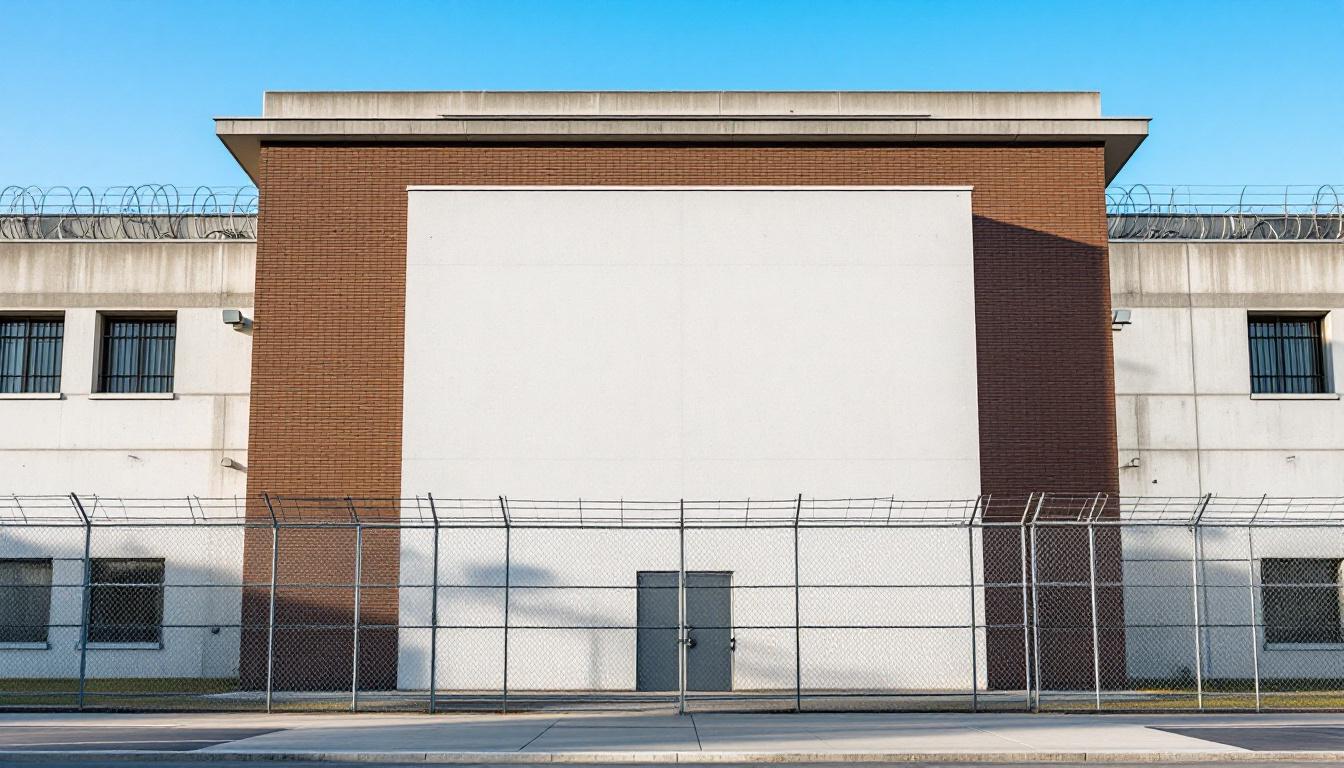
Quick Navigation
How to contact an inmate at Haywood County Detention Center
This comprehensive guide will walk you through how to connect with an inmate at Haywood County Detention Center. Follow the steps below to find an inmate and send letters and photos:
- Search for the inmate using our search tool below
- Create your account or log in to Penmate
- Write your message (up to 6,000 characters)
- Send instantly - inmates receive printed copies daily
Find an Inmate
Search for an inmate to start communicating today
Tip: You can search by first name, last name, or inmate ID number
To contact a person at Haywood County Detention Center start by searching for the person on the official facility website. Perform a search by following these steps:
- Step 1: Enter their first name and last name into the search form and click "Search"
- Step 2: Locate their inmate record
- Step 3: Write down their Inmate ID and any housing information provided
Important! Be sure to enter the person's full name. Nicknames should not be used.
How to Send Messages to Inmates

You can use your phone or computer to send emails, letters, and photos to an inmate. Messages are sent electronically to inmate tablets or kiosks at the facility. If you would like to send a message, start by searching for an inmate at Haywood County Detention Center.
Sending Photos and Postcards

A great way to send love and support to a loved one at Haywood County Detention Center is to send photos and postcards. It only takes a few minutes to send photos from your phone and it makes a huge difference. You can also mail postcards with words of support and inspiration, or design your own postcard for special moments like birthdays and holidays.
Important! Be sure not to send any explicit photos or they may not be approved by the facility. You can also use a photo printing app like Penmate to make sure your photos are printed at the correct size (4x6 or 3x5) and are mailed according to the rules and regulations of Haywood County Detention Center.
Frequently asked questions about Haywood County Detention Center
-
How long does it take to deliver a message?
If you're sending an email message your letter is usually delivered within 24-48 hours. For messages sent via mail you should expect delivery within 3-7 days. All messages will need be approved by Haywood County Detention Center.
-
How much does it cost to send a message to Haywood County Detention Center?
You can send a message free using your phone or mail a message via USPS for the price of a $0.60 stamp and envelope. You can also purchase credits or e-stamps from services starting at $1.99.
-
What services can I use to contact an inmate at Haywood County Detention Center?
Penmate
You can use Penmate to send letters and photos to an inmate from your phone. It's an easy way to stay in touch during your loved one's incarceration. Use the inmate locator to find an inmate's location and contact information, then you can send messages within a few minutes.
Securus messaging
Securus may be another option for communicating with an inmate at Haywood County Detention Center. You can create a friends and family account and purchase credits to send messages. All messages will be reviewed and must be approved by the facility.
JPay
Some county jails and state prisons may support sending messages with JPay. You must register an account with the system, find your loved one, and purchase stamps to send messages. For some locations you can also attach photos.
Smart Jail Mail
You may also check if Smart Jail Mail is available at Haywood County Detention Center. Smart Jail Mail is operated by Smart Communications and has contracted with some state and county jails. After purchasing credits, your messages and photos are sent to the facility, printed out, and then handed out to your loved one.
-
What is the mailing address of Haywood County Detention Center?
Mailing address:
Haywood County Detention Center
1620 Brown Ave
Waynesville, NC 28786
Phone: (828) 452-6666 -
What are the visiting hours at Haywood County Detention Center?
Visiting hours at Haywood County Detention Center vary by housing unit and security level. Generally, visits are scheduled on weekends and holidays, with some facilities offering weekday visits. Contact the facility directly at (828) 452-6666 or check their website for the current visiting schedule. Visits typically last 30-60 minutes and must be scheduled in advance.
-
What items are prohibited when sending mail to Haywood County Detention Center?
Prohibited items typically include: cash, personal checks, stamps, stickers, glitter, glue, tape, staples, paperclips, polaroid photos, musical or blank greeting cards, hardcover books, magazines with staples, and any items containing metal or electronics. Only send letters on plain white paper with blue or black ink. Photos must be printed on regular photo paper (no Polaroids). Always check with Haywood County Detention Center for their specific mail policies.
-
How do I send money to an inmate at Haywood County Detention Center?
You can send money to an inmate at Haywood County Detention Center through several methods: 1) Online using JPay, Access Corrections, or the facility's approved vendor, 2) Money orders mailed directly to the facility with the inmate's name and ID number, 3) Kiosks located in the facility lobby, or 4) Over the phone using a credit or debit card. Fees vary by method, typically ranging from $2.95 to $11.95 per transaction.
-
Can I schedule a video visit with an inmate at Haywood County Detention Center?
Many facilities now offer video visitation as an alternative to in-person visits. At Haywood County Detention Center, video visits may be available through services like Penmate, Securus Video Connect, GTL, or ICSolutions. Video visits typically cost $10-20 for 20-30 minutes and must be scheduled in advance. You'll need a computer or smartphone with a camera and reliable internet connection. Contact the facility for their specific video visitation policies and approved vendors.
-
What identification do I need to visit an inmate at Haywood County Detention Center?
All visitors must present valid government-issued photo identification such as a driver's license, state ID, passport, or military ID. Minors must be accompanied by a parent or legal guardian who can provide the minor's birth certificate. Some facilities require visitors to be on the inmate's approved visitation list, which may require a background check. Contact Haywood County Detention Center for specific ID requirements and visitor approval procedures.
-
How can I find out an inmate's release date?
To find an inmate's release date at Haywood County Detention Center, you can: 1) Use the online inmate search tool if available, 2) Call the facility's records department, 3) Contact the inmate's case manager or counselor, or 4) Have the inmate provide this information during a call or visit. For privacy reasons, some facilities only release this information to immediate family members.
Facility Overview
Contact Information
Haywood County Detention Center1620 Brown Ave
Waynesville, NC 28786
Phone: (828) 452-6666
Official Website

About Haywood County Detention Center
Nestled within the mountainous terrain of western North Carolina, Waynesville serves as home to Haywood County Detention, NC, a correctional facility that operates as an integral component of the region's justice system. This NC correctional facility maintains its commitment to public safety while simultaneously addressing the complex needs of individuals within its custody through various rehabilitative approaches and community-centered initiatives.
The detention center typically collaborates with local organizations and service providers to deliver comprehensive residents services that may include educational opportunities, substance abuse counseling, and vocational training programs. Staff members generally work alongside community partners to develop reentry planning strategies that help prepare individuals for successful transitions back into the Waynesville area and surrounding communities. These collaborative efforts often encompass mental health support, job readiness preparation, and family reunification services designed to address the multifaceted challenges that residents may face both during incarceration and upon release.
Through its operational framework, Haywood County Detention, NC strives to balance security requirements with rehabilitation-focused programming that serves both the immediate needs of residents and the broader safety interests of the community. The facility's approach to corrections typically emphasizes accountability while providing pathways for personal growth and positive behavioral change, reflecting contemporary understanding of effective correctional practices within North Carolina's detention system.
Programs & Services
Educational services form the cornerstone of rehabilitation initiatives at Haywood County Detention, with residents typically accessing comprehensive learning opportunities designed to address fundamental skill gaps. The facility's approach centers on practical skill development that may directly impact successful community reintegration. These initiatives often emphasize building foundational competencies while addressing individual learning needs through structured programming.
Educational initiatives typically include GED preparation services that help residents complete their high school equivalency requirements. The facility may deliver basic literacy and numeracy instruction for those requiring foundational academic support. Furthermore, vocational training opportunities often focus on developing marketable job skills in areas such as construction, food service, or maintenance work. These programs typically emphasize hands-on learning experiences that residents can apply in employment settings upon release.
Support services play a crucial role in daily operations while providing valuable work experience for residents. Janitorial services and laundry services may offer structured work opportunities that teach responsibility and time management skills. Furthermore, communication skills development initiatives often help residents improve their interpersonal abilities and conflict resolution techniques. Therapeutic initiatives typically include substance abuse programs that address underlying addiction issues through counseling and educational components. These comprehensive support services work together to create a structured environment focused on personal growth and practical skill development.
Daily Life & Visitation
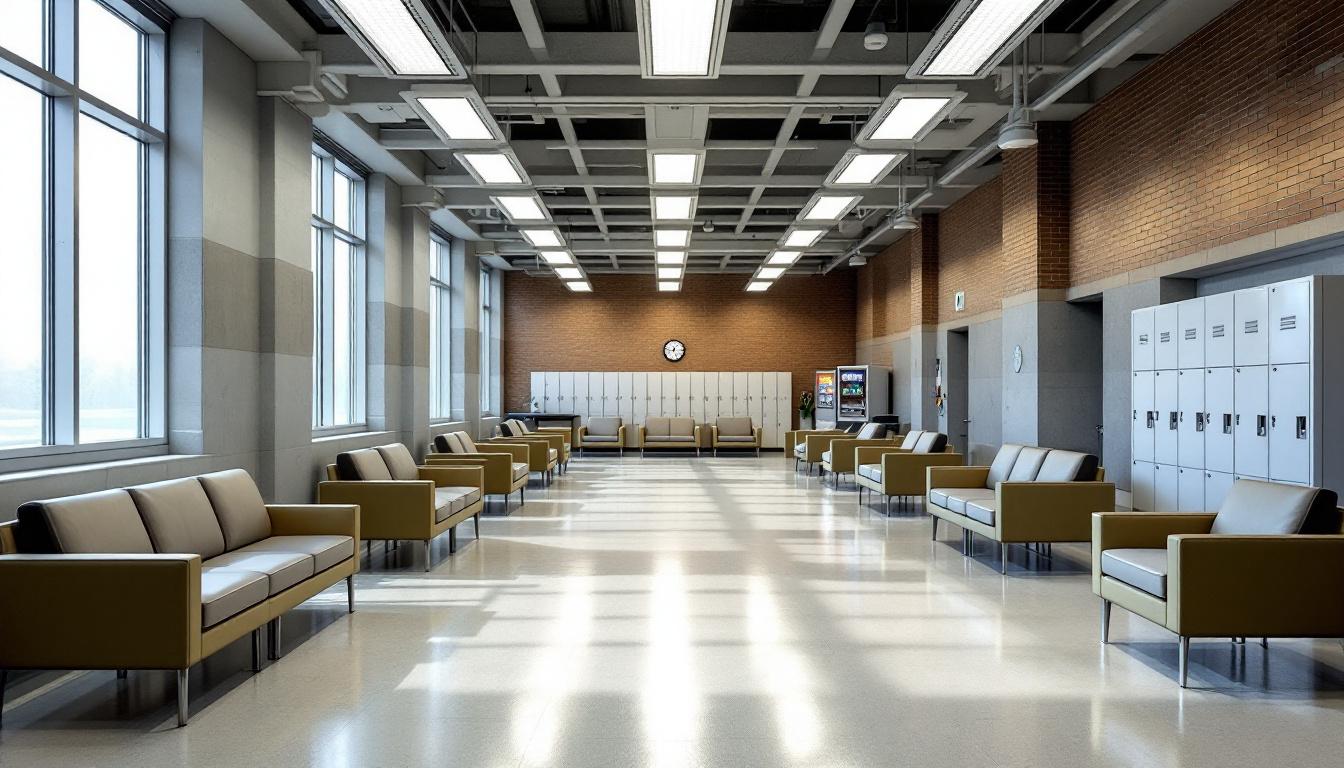
Structured schedules currently form the backbone of daily operations, with consistent wake-up calls, meal times, and programmed activities that continue to provide residents with predictable routines. This framework typically includes morning inspections, scheduled count times throughout the day, and designated periods for various activities that help maintain order and stability within the facility environment.
Housing arrangements at Haywood County Detention generally feature dormitory-style or cell-based accommodations, depending on classification levels and available space. Residents typically receive basic bedding, personal hygiene items, and have access to limited personal property storage. Meals are usually served in common dining areas at regular intervals, with menus that aim to meet basic nutritional standards. Furthermore, the facility often provides commissary services where residents may purchase additional food items and personal care products, subject to security guidelines and account balances.
Programming schedules deliver various opportunities for residents to engage in structured activities during their stay. Recreation time may include outdoor exercise periods, indoor fitness activities, and organized sports when weather and security conditions permit. Although visitation policies vary based on security classifications, the facility typically offers scheduled visiting hours for family members and approved contacts. Communication options generally include monitored telephone access and mail services, helping residents maintain connections with their support systems. Work assignments within the facility often include kitchen duties, cleaning responsibilities, and general maintenance tasks that provide structure while contributing to daily operations.
Ready to Connect?
Start communicating with your loved one today
Search for an Inmate
